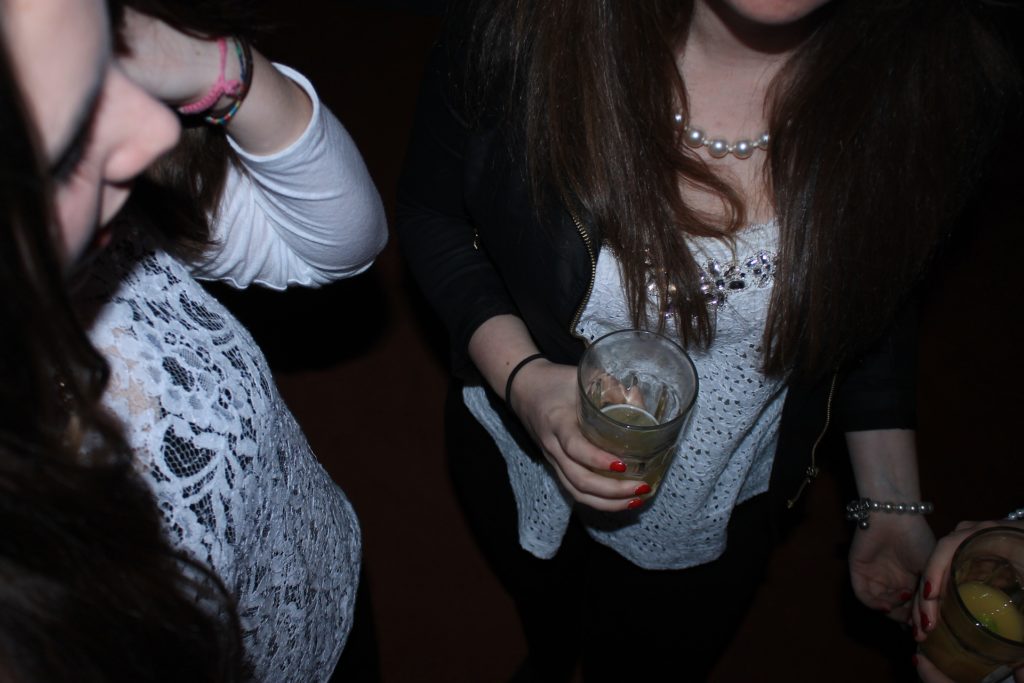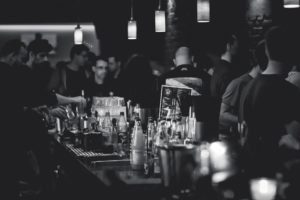
We’ve all heard people on a night out casually comment that alcohol helps them in social situations, stating, “it makes me more outgoing,” or, “I feel less insecure after a few drinks.” Our society seems to view it as acceptable to mix booze and social anxiety in order to cope with extroverted tendencies and feelings of insecurity and social anxiety.
However, like many things, society views as acceptable, promoting this message creates a dangerous precedent.
Social Anxiety
Approximately 15 million people in the US, 7% of the population, struggle with social anxiety disorder [1]. This disorder is more than just “shyness.”
It is a specific disorder that the Diagnostic and Statistic Manual of Mental Illness outlines is characterized by persistent fear of one or more social or performance situations, exposure to the feared situation almost invariably provoking anxiety, a recognition by the individual that this fear is unreasonable or excessive, and avoidance or anxiety-inducing anticipation of the feared situation [2].
These symptoms go further than an individual merely feeling “nervous” for a social situation or presentation, persisting for over 6 months and often resulting in severe anxiety symptoms such as panic attacks. Mixing booze and social anxiety is not the way to address a person's social anxiety disorder.
“Social Lubricant”
As mentioned above, many treat alcohol as the antidote to these feelings of social anxiety, casually believing that they are “funnier,” “more outgoing,” or “more attractive” after they have had a few, or a lot of, drinks.
It makes sense that people believe these messages, as they aren’t entirely unfounded. Alcohol alters the chemical processes of the brain and body.
Researchers have found that, as a result, alcohol “impairs the information processing needed to inhibit response impulses (such as) the abilities to foresee negative consequences of the response (or) to recall inhibiting standards [3].”
Booze and Social Anxiety
Despite the popular ideas of alcohol “helping” social anxiety, it isn’t 100% true. Yes, it may reduce feelings of anxiousness or self-consciousness temporarily.
However, often, the opposite results occur long-term. One study found that alcohol consumption increases an individual’s feelings of aggression, self-disclosure, and sexual adventure [3].
 This often results in long-term anxiety over decisions made that one might not be comfortable with once the alcohol subsides. Additionally, alcohol has been shown to increase feelings of depression, anxiety, or irritability within a few hours or even the following day [1].
This often results in long-term anxiety over decisions made that one might not be comfortable with once the alcohol subsides. Additionally, alcohol has been shown to increase feelings of depression, anxiety, or irritability within a few hours or even the following day [1].
Research published as recently as March 2019 found that social anxiety disorder has a direct effect on alcohol use disorder [4]. This study detailed that social anxiety disorder predicted alcohol use disorder more than any other anxiety disorder and that it was linked with an increased risk of developing alcohol use disorder [4].
As such, it is unsurprising that, of the 15 million individuals with anxiety disorder mentioned above, 20% of them also struggle with alcoholism [1]. The truth is, there is no quick fix for social anxiety disorder.
If you struggle with this disorder, I encourage you to go to therapy to process how it impacts your daily life and learn healthy methods of coping with a professional.
Any other solution is merely a band-aid and, as we can see with alcohol, will make symptoms worse.
Resources:
[1] Unknown (2018). Social anxiety disorder and alcohol abuse. Anxiety and Depression Association of America, retrieved from https://adaa.org/understanding-anxiety/social-anxiety-disorder/social-anxiety-and-alcohol-abuse.
[2] American Psychiatric Association (2013). Diagnostic and statistical manual of mental disorders (5th edition). Washington, DC.
[3] Steele, C. M., Southwick, L. (1985). Alcohol and social behavior: the psychology of drunken excess. Journal of Personality & Social Psychology, 48:1, 18-34.
[4] Torvik, F. A. et al. (2019). Explaining the association between anxiety disorders and alcohol use disorder: a twin study. Depression & Anxiety, 36:6, 522-532.
About the Author:
 Margot Rittenhouse, MS, NCC, PLPC is a therapist who is passionate about providing mental health support to all in need and has worked with clients with substance abuse issues, eating disorders, domestic violence victims, and offenders, and severely mentally ill youth.
Margot Rittenhouse, MS, NCC, PLPC is a therapist who is passionate about providing mental health support to all in need and has worked with clients with substance abuse issues, eating disorders, domestic violence victims, and offenders, and severely mentally ill youth.
As a freelance writer for Eating Disorder and Addiction Hope and a mentor with MentorConnect, Margot is a passionate eating disorder advocate, committed to de-stigmatizing these illnesses while showing support for those struggling through mentoring, writing, and volunteering. Margot has a Master’s of Science in Clinical Mental Health Counseling from Johns Hopkins University.
The opinions and views of our guest contributors are shared to provide a broad perspective of addictions. These are not necessarily the views of Addiction Hope, but an effort to offer a discussion of various issues by different concerned individuals.
We at Addiction Hope understand that addictions result from multiple physical, emotional, environmental and genetic factors. If you or a loved one are suffering from an addiction, please know that there is hope for you, and seek immediate professional help.
Published on July 1, 2019
Reviewed & Approved by Jacquelyn Ekern, MS, LPC on July 1, 2019
Published on AddictionHope.com
